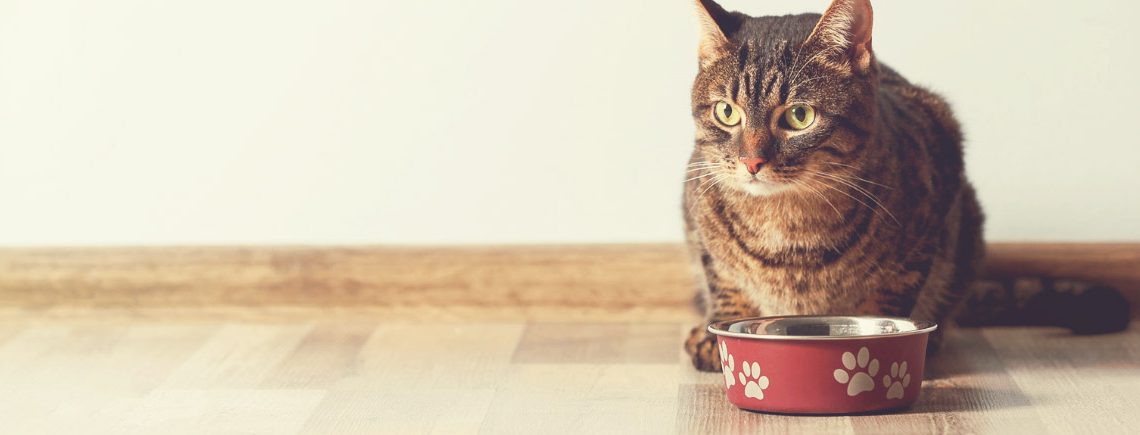Switching Your Cat to a Senior Cat Food
As your cat grows older, you will begin to notice some changes in their demeanour. Gray hair may begin to develop, they become less active and may enjoy resting more. One of the key developments in an ageing cat is their diet-with the proper nutrition, you can help your senior feline enjoy their golden years even more.
In this blog post, we will explain the benefits of senior cat food, the differences between a senior formula and an adult formula, and how to know when it’s time to make the switch.
Benefits of Senior Cat Food:
Cat foods that are optimal for senior cats often have the following characteristics:
- Highly digestible ingredients that are easy on your older cat’s aging digestive system.
- An enhanced level of antioxidants which helps strengthen a senior cat’s fragile immune system.
- Lower calories to reduce chances of obesity, high cholesterol, and prevent excessive weight gain that would strain their joints.
- With kidney disease a prevalent problem in senior cats, many senior cat formulas contain increased hydration levels to help maintain a healthy kidney.
There are a wide range of food available to support your cat in her later years, and the team at Petmania are available to help you choose the best food for your senior cat. If you have any concerns about your cat’s health at any time, a visit to your vet is recommended.

How is Senior Cat Food Different?
Average adult cat food usually contains a higher quantity of minerals and vitamins due to the fact that younger cats are still growing and need the additional phosphorous, calcium, and other nutrients to maintain healthy bones and teeth.
Regular adult cat food usually contains up to 30% more calories than senior cat food, so if a senior cat were to live on regular cat food only, they have a higher chance of becoming overweight or sick. Additionally, they will be more prone to diseases and illnesses due to a weakened immune system.
Senior food that has been specially formulated for older cats is easier to digest and can better accommodate their changing needs as they age.
When To Switch To a Senior Formula
Generally, a veterinarian will deem a cat to be a senior when she is 7-10 years of age. By the time your cat is 10 years or older, you may hear your vet refer to your cat as ‘geriatric’, which simply means that to promote good quality of life and longevity, it is essential to give special consideration to your cat’s health.
Your veterinarian will also help guide you in making the decision to switch cat foods, and should be consulted before introducing any changes to your cat’s diet.
As always, when changing to a new food, you should do so gradually. Start by offering the new food at the same time as the old, slowly building up the proportion over a week to ten days until it is only the senior food formula that they are being fed.

Choosing a Senior Cat Food
Before transitioning to senior cat food, consult with your veterinarian to make sure your cat is ready. Below are some tips for how to make the transition easier for your cat.
Vet Carol Doyle recommends a move from a dry food formula to a wet cat food, or a dry food with a wet centre can make your cat’s mealtimes more appetizing and palatable for your cat. “A diet change in her senior years can help prevent weight loss and muscle mass decline,” she adds.
Dr Doyle continues, “while weight loss is a concern for senior cats, reduced mobility and activity levels can increase the risk of weight gain too. Weight gain in your senior cat can increase the risks of illness such as diabetes or kidney problems.”
You should also look at any special dietary needs your senior cat may have. Cats with chronic kidney failure should be on diets with highly digestible protein. Cats with dental or oral disease may need to switch to a dental veterinary diet or canned food. Cats that have diabetes may benefit from a diet high in fat, protein and fibre and low in carbohydrates.
If your cat has been diagnosed with a medical condition, it is important you consult with your vet before making any changes to their diet.
Some of our top recommendations for a Senior Cat Food Formula are;
- PURINA ONE Senior 7+ is nutritionally targeted to answer the specific needs of cats aged 7 years and over. Purina One BIFENSIS is specially formulated with yeast, prebiotics and antioxidants to help support your older cat’s natural defences and vital function.
- HILLS Mature Adult 7+dry cat food is formulated to meet the needs of mature cats aged 7 and over, providing tailored nutrition to support their energy and activity levels.
- FELIX Senior Selection in Jelly Pouch Multipack 12x100g provides your cat with 100% complete and balanced nutrition in four delicious recipes, in lamb, chicken, trout and tuna varieties
How Often Do I Feed My Senior Cat?
The frequency of meals will be based on your cat’s health status, but Vet Carol Doyle suggests feeding your senior cat at least twice a day and monitor for any weight gain in case you need to reduce total daily calories. It is worth noting that outdoor cats tend to burn more calories than indoor cats, as they are usually more physically active. Always discuss with your vet before making any dietary changes.
Weight & Body Condition
Monitoring your senior cat’s weight and body condition score will help you to track her development as she ages, and help guide you in knowing if / when a change in food or activity is required.
By regularly monitoring your senior cat’s weight you can quickly identify if there is any cause for concern, and allow you to take early action to prevent weight related problems from developing.


